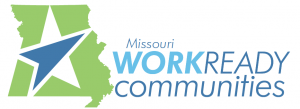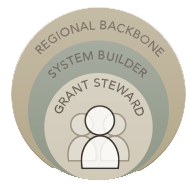Following several months of advocacy efforts by supporters of the National Career Readiness Certificate (NCRC) in Missouri, the state’s Department of Elementary and Secondary Education (DESE) announced Tuesday the official approval for the NCRC as an official measure of college and career readiness. The ACT Workkeys assessment now joins the list of other testing instruments that schools can use to gauge proficiency as required in the Missouri School Improvement Program (MSIP). With the inclusion of Workkeys in MSIP, school districts can better leverage local resources together in preparing students for the workforce, engaging in Certified Work Ready Communities (CWRC), and aid the accreditation pursuits required in state regulation.
“One of our primary goals is to make sure students graduate ready to succeed in college and career,” said Dennis Cooper, assistant commissioner in the Office of Quality Schools in DESE’s announcement. “Including the use of the WorkKeys® assessment as an option for districts and charter schools helps us do that, and it gives students, parents and teachers another way to see how well students are learning.”
Current instruments used in MSIP (ACT, Compass, ASVAB, etc.) offer some value, but none are as widely-praised by employers and other advocates as the NCRC. As of March 31st, more than 1,300 employers in Missouri publicly endorsed the NCRC. Of Missouri’s 114 counties, 39 are active in the Certified Work Ready Communities framework with strong participation by local school districts in each county’s CWRC leadership.
Senate Bill 701 included a provision supporting career readiness credentials as an amendment that was agreed and passed May 1st.
The department of elementary and secondary education shall permit student scores, that are from a nationally recognized examination that demonstrates achievement of workplace employability skills, to count towards credit for college and career readiness standards on the Missouri school improvement program or any subsequent school accreditation or improvement program.
DESE published an administrative memo to local school districts with guidance on the weighting of NCRC scores and how the scores are valued with other assessments currently permitted in the MSIP framework.
 Council for Adult and Experiential Learning
Council for Adult and Experiential Learning
 More than 1,200 Missouri employers are part of a growing list that tops 3,600 nationally for support of the National Career Readiness Certificate. The NCRC helps match employees to jobs based on verified skill levels. The support also helps local economies prosper through Certified Work Ready Communities (CWRC).
More than 1,200 Missouri employers are part of a growing list that tops 3,600 nationally for support of the National Career Readiness Certificate. The NCRC helps match employees to jobs based on verified skill levels. The support also helps local economies prosper through Certified Work Ready Communities (CWRC).





